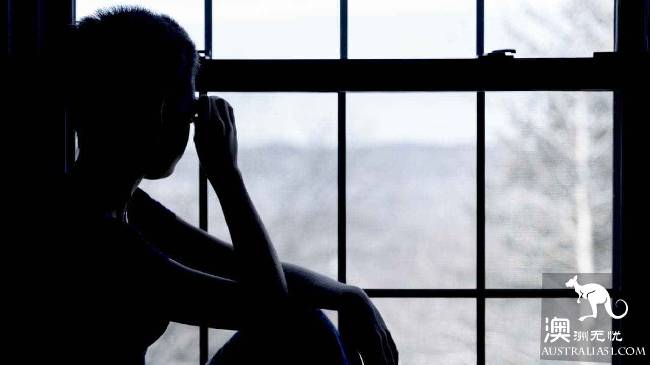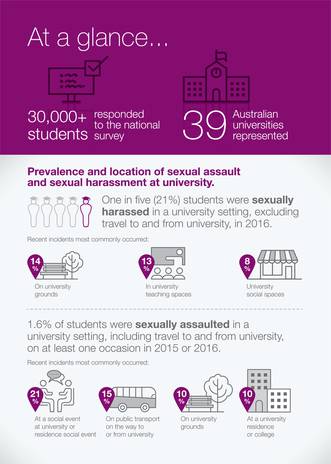A Chinese student who was rape on Canberra`s campus defended himself online in an interview with a documentary about sexual invasion criminals on Australian campuses.

The parties denounced the use of "more distorted plots to gain eyeballs" in some media.
What Leu, 19, didn`t expect was that Al Jazeera`s title, "< Australia: Rape on"
After the documentary of Campus > was reprinted by the Chinese media at home and abroad, it caused such a large-scale discussion and controversy. Although she chose to appear in real life in an interview, she hopes the Chinese media will handle the footage of her portrayal in the documentary and protect her privacy.
In the documentary, the woman from China, who is now a student at Australian National University, tells about her sexual assault on campus accommodation by a fellow schoolboy. She said the boy followed her into the room, pushed her into bed and said, "I`ll get what I want."
In an exclusive statement released through the local Chinese-language media "Kancheng Circle" social app official account, Leu accused some of the media of "falsifying the news with a more distorted plot to get the eye."
At the same time, she also defended herself in an interview with a documentary, she said. Only stand out and let others hear their own voice, can for themselves, for others to create or prepare for the future of protection. If I and the other girls hadn`t come forward this time, we wouldn`t have found so many loopholes in victim protection, and universities wouldn`t have attracted so much attention. "
At the same time, almost all screenshots of a widely circulated article on the Chinese web reproduces Leu`s documentary interview. The article claims that "rape students in Australia have become popular," in Australia, rape does not go to jail, "and warned students who want to study in Australia" don`t be fooled by fancy, good admissions advertisements. "
The article forced Leu to report the incident directly on the Chinese website Zhihu and, in a related discussion, wrote that the article "distorts and exaggerates facts" and "inflames hatred around the bush."
In this article, which has been read more than one hundred and eighty thousand times, the girl concerned said that she had asked some major media not to report it, "in order not to have the media do me a second harm." And said most of the media "understood to respect me" and immediately deleted or gave her photo pixelate.
Among the many comments received in the article, most applauded Leu`s bravery in showing a good example of a girl in a similar situation. Others questioned why she showed up in documentaries, denounced her for not making charges, accused her of damaging Australia`s image with her personal experience, and even doubted that she was making up a story. To prove to the sceptics that he was the person at the time, Leu also posted e-mail screenshots of himself and a documentary producer and a journalist in his response.
In her reply, Leu clarified her remarks in the documentary. "Don`t worry, it`s not your fault, but next time you should be careful," she said in the film. When she called the police, a female police officer said to her. "Don`t worry, it`s not your fault."
". Although the woman`s words hurt, she said, she could not rise to the Australian police inaction. On the contrary, she said: "the police at the police station was trying to help me, I did not encounter any racial discrimination or nationality discrimination."
As to why the assailants were not charged, she said that because the police had been gone for some time and there was no evidence. "it was very fragile at the time and it would collapse if I thought about it," she said. Trying to find a psychiatrist many times will not feel so painful. " In addition, for evidentiary reasons, her case appeals "two to three years."
"I have two to three years to live my life, and I have to live my life, and this vengeance will only create a chance to look back on the trauma. What I do is the best choice for my mental health. "
In 2017, the Commission on Human Rights conducted a large-scale survey of more than 30,000 students at 39 Australian universities. It turns out that more than half of Australian college students have experienced sexual harassment (sexually in the past yea
1.6 percent of harassed), students have been sexually assaulted, (sexually assaulted).
. However, 94% of students who suffered sexual harassment and 87% of students who suffered sexual assault did not formally report it or file a complaint with the university.

Meanwhile, the executive producer of the Al Jazeera documentary, Sharon Roobol, told the Australian newspaper that all women interviewed by the documentary would have seen a copy in advance of the release and agreed to share their stories. Show your face and reveal your identity in the show.
"We are sorry that other media have misreported Leu`s story, and this has caused her a lot of trouble," she said in an e-mail reply.
"when we are informed of channels where inaccurate reports have been published, we immediately contact them and ask them to correct or delete them. The women in this documentary have shown great courage in fighting against sexual assault, and it is disappointing that some people have responded to the film by accusing them of the victims. "
Tang Lin, a Chinese lawyer in Sydney, told the Australian newspaper that some of his contacts and potential clients in China had contacted him after reading the reports online for confirmation. "is that true?"
"my first reaction was that it must be fake news!" After watching the 25-minute documentary, Mr. Tang, who is also an immigrant student, said he began to believe that it was not fiction, especially when he saw the data from the Australian Human Rights Commission cited in the film. "it`s really shocking."
According to the report of the Commission on Human Rights, about one in five foreign students (22 per cent) encountered sexual harassment, in 2016 and 18 per cent of international students in the same year experienced sexual harassment. In the university environment.
Mr. Tang called on the government, universities, educational institutions and the media to face up to this serious problem and to provide a more detailed description and analysis of the data reported by the Commission on Human Rights, and even to set up a royal commission of inquiry to investigate it. Because "if not spend hard to solve, Australia studying abroad in the future will be greatly affected."
"it`s not a university issue, it`s not a university alliance issue, it`s not even a state issue, it`s about Australia`s overall image as a developed country among Chinese students."
Shortly after the documentary was released, the Federation of students representing National University undergraduates posted an update on its Facebook page on ANUSA reminding students to contact Canberra RapeCrisis Centre, a campus support service for victims of sexual abuse. Students are encouraged to share promotional photos of the multilingual title of the service.
Since last year, a number of Australian universities, including national universities, have required each student to complete and pass an online course module on sexual consent called "consent: boundaries, respect and active intervention"
(Consent Matters: Boundaries, Respect, And Positive
Intervention). Earlier this year, however, the move was criticised as "stupid" and "showy", saying it would not solve the sexual harassment problem effectively.

